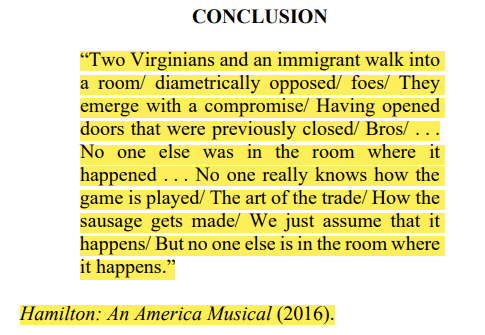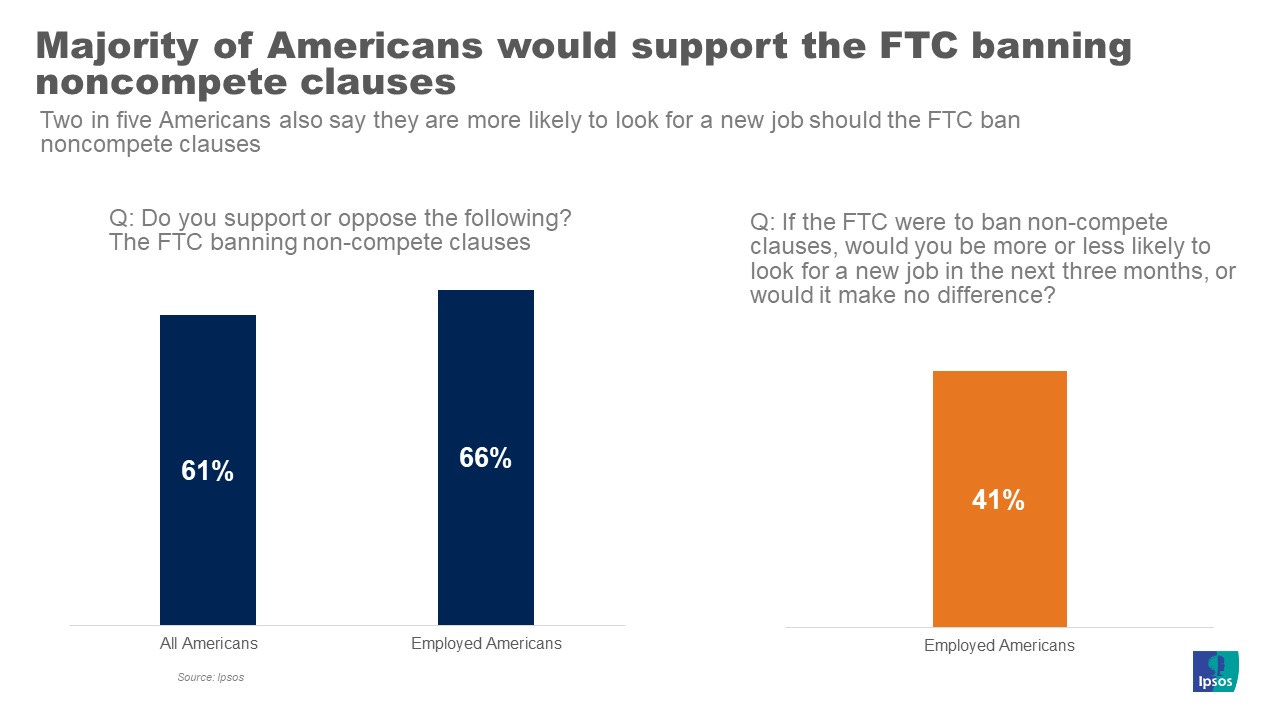Signals Brief: The FTC's Antitrust Probe Into Big Dialysis & The State of Noncompetes in Healthcare
Why 40% of doctors and 30 million Americans might soon find themselves on level playing fields with their employers.
What Happened: We recently learned that the Federal Trade Commission (FTC) opened an antitrust investigation into major dialysis providers Fresenius and DaVita earlier this year. According to Politico, the probe aims to determine if these companies are engaging in anti-competitive practices by restricting physician mobility and limiting patient treatment options, including home dialysis.
Why It Matters: The outcome of this investigation could have significant impacts on the dialysis market and patient care. With Fresenius and DaVita controlling 80% of the U.S. dialysis clinics and 90% of revenues, any findings of anti-competitive behavior could lead to significant changes.1 Here are a few themes to keep in mind as this plays out:
Antitrust In Focus: This is not the first time FTC has acted against anticompetitive forces in healthcare in recent years— nor is the first such case within dialysis. Promoting competition in healthcare is top of mind for several agencies in Washington. In April, the FTC, DOJ, and HHS launched a new online portal for the public to report potentially unfair health care practices.23
Thou Shall
NotCompete: Non-competes are common in healthcare— around 40% of physicians are bound by these types of agreements. Nephrology exposure is less clear. In a 2023 survey by the ASN, nearly 1 in 3 new nephrologists were taking on Dialysis Medical Director roles, and 20% were participating in dialysis joint ventures. If there are 7,577 US dialysis facilities as of writing this, of which 89% are for profit, how many Medical Directors are there?45Making it
easierharder to go home: Non-competes can ban doctors from serving as medical directors in competing settings, including patients’ homes within the same geographic market. We all know increasing home adoption is hard work from beginning to end— this would certainly make it even harder to reach CMS’s goal of having 19% of patients at home by 2027.67
Bigger Picture: Non-compete agreements (NCAs) have been a contentious issue in healthcare for years. Critics argue they stifle competition and limit patient access, while healthcare organizations claim they protect investments in their clinicians.

On April 23, the FTC announced a final rule banning most NCAs, set to take effect in September. Only 5 states had already banned their use. As you might imagine, responses to the ban were strong, swift, and in some cases, diametrically opposed. Still, the FTC estimates the ban could reduce healthcare costs by $74-$194 billion over the next decade.
Recruitment costs: “Talking to AMGA members, I've heard it takes anywhere from $300,000-$500,000 just to recruit that new physician, and physicians don't come in with a practice right away." Promoting physician independence while protecting these significant investments is the Faustian bargain of our time.
What do doctors say? Many say these agreements lock them and their patients in, and make it harder to stay in their local communities if they leave their employer. The final rule supplement has testimonials from doctors and a table (pg. 569) of ban impacts for each state. Of the 26,000 comments regulators received on the proposal, 25,000 were in favor of the ban.
Nonprofits, too?: One of the major issues that must be sorted out through the legal system before the ban gets implemented is its impact on nonprofit organizations like hospitals. There are 6,129 active hospitals in the U.S— nearly half are nonprofits.
What To Watch: The ban is making its way through the legal system at the state level. Keep an eye on Texas and Pennsylvania — 70% of PA hospitals are non-profits, and UPMC is the state’s largest employer.8
Discussion
This is the uncomfortable elephant in every room and discussion about kidney care, from patient access to reimbursement. But it needs to be had; and, where possible, we should take every opportunity to share what is and is not working so that we may improve our kidney care system in this country. Clearly, you don’t have to go far to find media spotlights on missteps and pitfalls in the current system.
On the other hand — and as my colleague Dr. Amber Paulus eloquently pointed out in her LinkedIn post — while this probe is about companies, the larger conversation is about people. The nearly 200,000 people working in these companies and clinics are putting patients first. Personally, I’ve had the pleasure of meeting and working with many of them. Make no mistake, I wouldn’t be here writing this kidney innovation newsletter or building a kidney learning company without them.
Thank you for being here. Finding the wins in this space can seem daunting, but they do exist. If this conversation resonates, struck a chord / nerve, or if you have a story to share, I’d love to hear from you in the comments below.
Keep exploring,
— Tim
Keep Reading
Feds tackle dialysis giants with antitrust probe. The Federal Trade Commission investigation of DaVita and Fresenius Medical Care follows years of consolidation in the dialysis industry. Politico (2024)
Medicare is using one of its biggest hammers to try to fix the dialysis system: how providers are paid. A closer look at the ETC model aims, limitations, challenges and opportunities. STAT (2022)
Should Your Kidney Doctor Have a Financial Stake in Dialysis? Joint ventures between nephrologists and dialysis centers have expanded treatment. Critics ask: At what cost? Scientific American (2020)
The Dirty Business of Clean Blood.
writes a fantastic newsletter on the politics of monopoly power right here on Substack. His piece on the dialysis industry from earlier this year borrows from ’s most recent book, How to Make a Killing: Blood, Death and Dollars in American Medicine.
Want to support my work?
How acquisitions affect firm behavior and performance: evidence from the dialysis industry — Harvard Econ (2019)
In 2021, DaVita sold several clinics as part of an agreement with the FTC to complete a deal in Utah. Earlier this year, Fresenius sold dialysis clinics in several South American countries to DaVita for $300 million.
In 2018, FTC filed a complaint against three of the largest dental product distributors.
Breaking down the FTC noncompete ban, its impact on healthcare — RevCycle Intelligence (2024)
The Impacts of Restricting Mobility of Skilled Service Workers: Evidence from Physicians — Kurt Lavetti (2018)
Medicare Program; Specialty Care Models To Improve Quality of Care and Reduce Expenditures. Centers for Medicare & Medicaid Services. 85 Fed. Reg. 61353 (September 29, 2020), 42 CFR 512
![Signals From [Space]](https://substackcdn.com/image/fetch/w_80,h_80,c_fill,f_auto,q_auto:good,fl_progressive:steep,g_auto/https%3A%2F%2Fsubstack-post-media.s3.amazonaws.com%2Fpublic%2Fimages%2F55686857-6b99-45a6-ac0f-09c9f023f2a0_500x500.png)
![Signals From [Space]](https://substackcdn.com/image/fetch/e_trim:10:white/e_trim:10:transparent/h_72,c_limit,f_auto,q_auto:good,fl_progressive:steep/https%3A%2F%2Fsubstack-post-media.s3.amazonaws.com%2Fpublic%2Fimages%2F4d588ac1-7fac-4bd4-829d-fc7b4e8f1326_1512x288.png)

![Signals From [Space]](https://substackcdn.com/image/fetch/w_36,h_36,c_fill,f_auto,q_auto:good,fl_progressive:steep,g_auto/https%3A%2F%2Fsubstack-post-media.s3.amazonaws.com%2Fpublic%2Fimages%2F55686857-6b99-45a6-ac0f-09c9f023f2a0_500x500.png)




